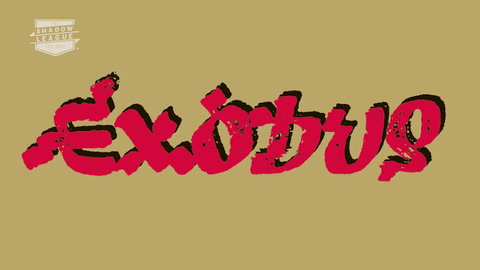The day of infamy was December 3, 1976 when gunmen charged through the doors of Bob Marley’s house, shooting indiscriminately with two automatic rifles.
Percussionist Alvin “Seeco” Patterson screamed out “Blood claat! Is Seaga men! Dem come fe kill Bob!,” according to Vivien Goldman’s, “The Book of Exodus,” a beautifully written book that tells the story of the making of the album that he created following this assassination attempt.
June 3 marked the 44th anniversary of Bob Marley’s magnum opus, Exodus, an album that literally personified his personal exodus from his beloved homeland after the assassination attempt and a spiritual exodus he hoped for his struggling Jamaican brothers. The album catapulted him to international stardom and the spirit of the remarkable work still resonates.

Manager Don Taylor and wife Rita Marley were seriously injured during the attempt on his life. Bob survived minor injuries to his chest and arm.
He had decided to perform for a “peace” concert, hoping to ease tensions between the warring political parties before the election. Marley had turned down a show for the Jamaican Labor Party and candidate Edward Seaga, (who reportedly was supported by America’s secret service), and his acceptance to do the concert for Prime Minister Michael Manley, who had formed alliances with Cuba and Russia, looked as if Bob had chosen sides. Because he had become an international star, his influence was heavy.
After he survived the attempt on his life, Marley fled to London where, for an 18-month period in a burst of creativity, he wrote and recorded Exodus.
It was a departure from traditional roots reggae and some people on the island looked at it as sell-out pop music. But the album was a creative masterpiece, mixing various genres from R&B to roots reggae, to rock, to experimenting with modern technology such as drum machines way ahead of the time before they became popular.
Marley and his band would start recording tracks around 1 in the afternoon and go on until 4 or 5 in the morning. They would sleep for six hours and do it all over again.
The album in some ways seems designed as Bob’s personal journey. The first track “Natural Mystic” was originally recorded with the incomparable Lee Scratch Perry a year before the album’s version.
On the album track, it is Bob singing alone, with a robust horn section in the style of Fela or Mandrill. It’s a plaintive introductory song where he speaks of his immediate angst: This could be the first trumpet/Might as well be the last/Many more will have to suffer/Many more will have to die/Don’t ask me why.
It could be interpreted as the fallout of unsolicited martyrdom, the casualties of war, or as his lover, Cindy Breakspeare said at the time: “Bob is singing about himself.”
By the second track, “So Much Things to Say,” he’s overtly political, shouting out leaders with pure sufferation: Marcus Garvey, Jamaica’s hero Paul Bogle and Jesus Christ: “Oh, true they have found me guilty/ But through–through Jah proved my innocency.”
The themes on the tracks Guiltiness and The Heathen follow a similar trajectory. The Heathen offers an unapologetic rock guitar solo from Junior Marvin.
The title track Exodus rounds out the A side where Bob reconciles a loss for his home country, unsure at the time that he would ever return home. He also speaks on more esoteric forms of exodus: Jamaicans repatriation to Africa, an exodus towards spirituality and righteousness for the common man and towards your fellow man.
The B side is a list of all of his international commercial successes starting with Jamming, a song that inspired the groove for Stevie Wonder’s “Master Blaster.” On its surface, it’s a dance tune and there’s no masking its infectiousness.
But it’s also a song of resistance through joy, through living with righteous freedom when people want otherwise. Through honoring the most High’s decision to give you life and to live it fully: No bullet can stop us now, we neither beg nor we won’t bow/Neither can be bought nor sold.
And what is living without romantic love or lustful sex or a combination of both. “Waiting in Vain” and the tune that follows it, “Turn Your Lights Down Low,” explore both. There was some discrepancy on whether “Waiting in Vain” was written for his lover, Cindy Breakspeare who was in London during the taping or his wife Rita, who performed background vocals that weren’t used on the track.
Following the theme of life’s small joys, “Three Little Birds,” a danceable mix of folk and gospel was actually inspired by Bob watching three little canaries that would come by his windowsill daily. The I Threes, Rita Marley, Judy Mowatt, and Marcia Griffiths also lent their interpretation that it was a nod to them.
The ending song, “One Love/People Get Ready,” a ubiquitous part of pop culture due to commercials for trips to Jamaica, contained a riff from The Impressions classic single. Rather than risk getting sued, they credited Curtis Mayfield and gave him half of the royalties. While on the surface its a song about universal acceptance, there are darker themes of confronting evil and an impending apocalypse. It was originally recorded with the original Wailers a year before when Bob was in his ska prime.
Exodus and its timeless themes will live on forever alongside Bob’s spirit of resistance, an insistence on living life his way, and his mystic kind of poetry that urged the same for his fellow man.



